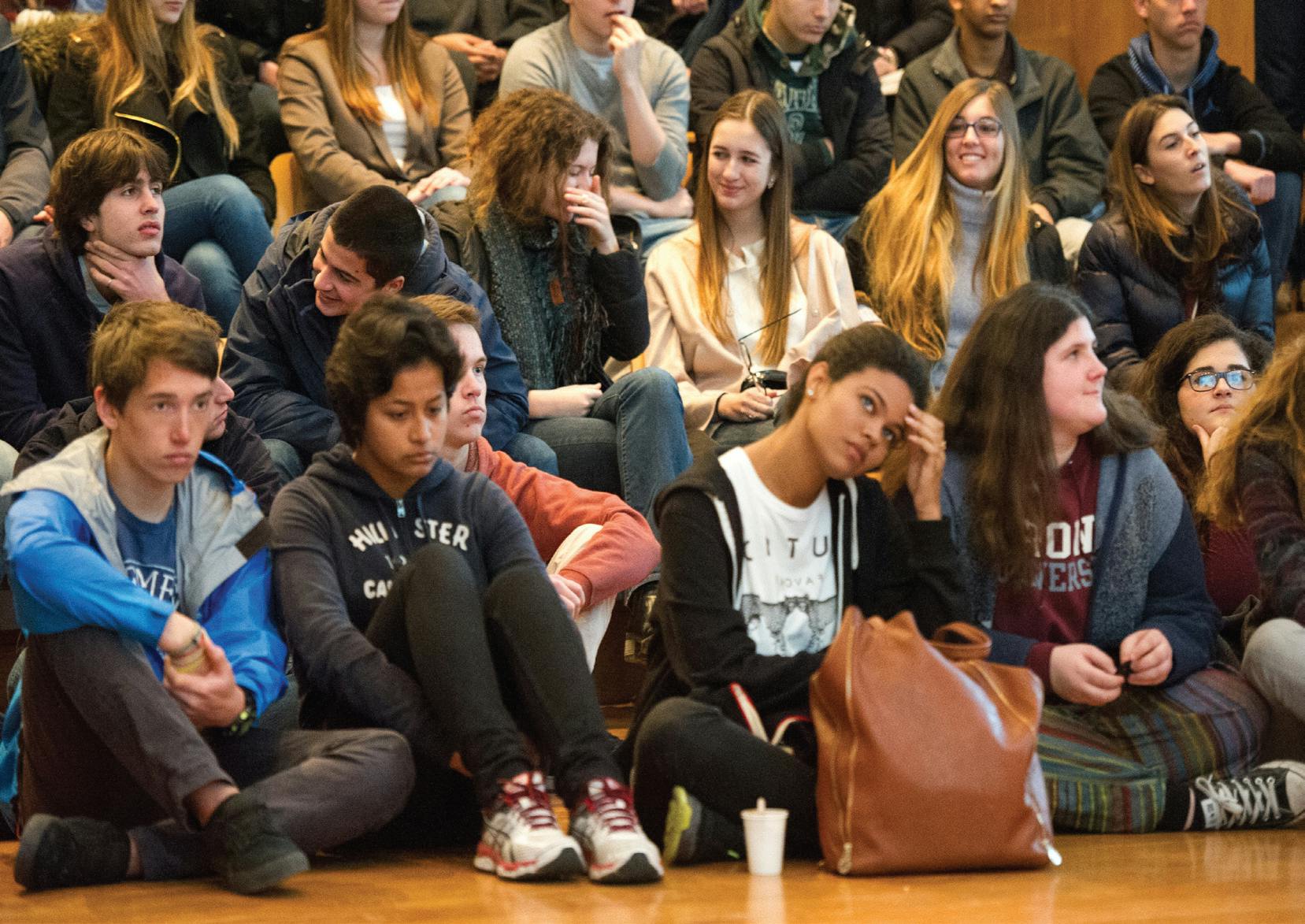
Examining the Impact of Stress
Unfortunately, evidence suggests that the fix for our anxiety levels might be a little further out of reach. Research indicates that stress levels have been rising among young people over the last decades while the demands of rigorous tests, including the IB, have changed little. A national survey of college freshmen in the US, published in 2011, found that only 51% of them rated themselves as emotionally healthier than average—down from 70%, just a few decades ago. A more recent survey even suggests young people today are more anxious than their counterparts during the Great Depression.
So what is behind this plague of angst that has settled upon our young people? The literature suggests a number of intriguing possibilities. The good news is that none of them have much to do with homework—at least not directly. The bad news is that what emerges is rather a mosaic of causes with the potential to compound one another.
To begin with, economic instability—manifest in increased competition in the university and job markets—usually tops the list of culprits. As we watch our students fret over how hard it is to stand out and get ahead in this environment, Joseph Heller's famous dictum that, "just because you're paranoid doesn't mean they aren't afrer you" comes to mind. With record numbers of students competing for spots at prestigious universities, as the nature of the economy evolves with tuitions ballooning and middle-class jobs vanishing, the so-called Millennials (those born between 1981 and 2001) are predicted to face lower standards ofliving than those enjoyed by their parents.
And how prepared are they to compete in academia? Some scholars worry over the alleged echo-chamber effect ofFacebook and other social media, which limit the encounters our students have with challenging and provocative ideas.
The spread of 'trigger warnings' in university courses, attached even to classical literature, leaves professors lamenting the death of education as a means preparing students for a cut-throat pro fessional context. How, they wonder, can students succeed in a world where comfort levels will not be accounted for and critical diplomacy in the face of ideological challenge will be crucial? Predictions of a sheltered generation, ill-equipped to manage conflict are probably overwrought, bur that increased sensitiv ity to confrontation may be exacerbating stress levels is worth considering.
In examining the impact of stress, the conjoined twins of empa thy and materialism must also be treated, where the latter acts as a sort of parasite, draining the life out of the former. A survey of 355,000 high school seniors published in 2013 reported 62 percent of them rated having a lot of money as important, up from 48 percent in the late 1970s.
Emory Professor Mark Bauerlein, in an editorial several weeks ago, noted the following with respect to the American Freshmen Survey:
"One prompt in the questionnaire asks entering freshmen about "objectives considered to be essential or very important." In 1967, 86 percent of respondents checked "developing a meaningful philosophy of life," more than double the number who said "being very well off financially."
Naturally, students looked to professors for moral and worldly understanding. Since then, though, finding meaning and mak ing money have traded places. The first has plummeted to 45 percent; the second has soared to 82 percent."
This shift in attitudes, when considering stress, must be con sidered in conjunction with other findings, which link high levels of materialism to high levels of distress and low levels of self-acceptance. By contrast, consider the findings of the Har vard, "Grant Study'' on human happiness, which indicate that close human relationships, rather than wealth or even IQ, are the most crucial aspect of happiness across one's lifetime-or as Professor George Vaillant, the study's director, summarised its findings: "Happiness is love. Full stop." Other research has linked long-term happiness to experiential, rather than mate rial, acquisitions and to a sense of purpose, rather than profit, in work. A finding published just last week in the New York Times reported that the most highly paid lawyers suffer the highest rates of depression and self-destructive behaviours, with their lower paid counterparts in public defense (or more ideologically driven work) reporting the highest levels of happiness. Indeed, the findings are in and tell us that, insofar as we link success to money, we are sending our students down a path to furthe stress derived from an impoverished sense of self for which no monetary compensation will be adequate. And yet, in advertis ing, mass media, and perhaps even in education we (intention ally or not) often do just that. We lazily conflate the best things with the most expensive things. We measure success by compen sation rather than by contribution.
In the course of casual conversation here at school, I've had more than one student ask me why I wasn't doing "something else" or whether I had any "regrets" about my career as an educator. "Something else" here can only be code for 'something better compensated,' or perhaps something promising fame or public adulation. Setting aside the discussion of teacher compensation, which perhaps brings a related weight to bear on societal priori ties, I respond by asking them why I ought to regret my choice. I point out the joy of the relationships one builds as an educator, and the sense of contribution to the lives of individuals and to the functioning of a healthy and free society. I laud the sheer purposefulness of this work and suggest that they weigh these dimensions themselves, when mulling potential professions of their own.
So, given that we can't make the IB any easier, what can we do as educators to mitigate their stress? The answer to me seems straightforward: make them stronger in joy. Challenge them to approach the messages in their environment critically and with confidence; teach them to think of what they can give as a met ric by which to measure success; encourage them to drop the screens, like veils of mind, from time to time and engage with their peers and with civil society, and encourage diligence and practice so as not to deny them their sense of accomplishment and agency.
In short, educate them for happiness.


